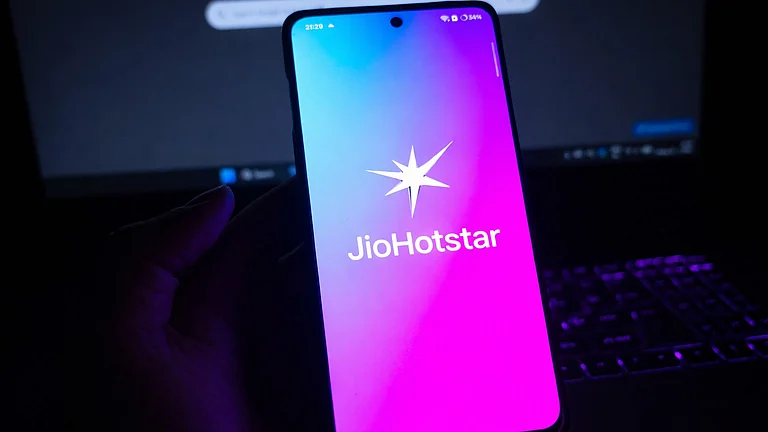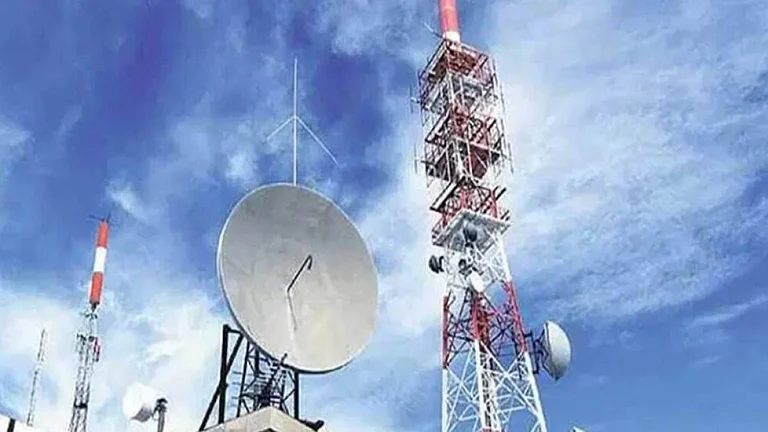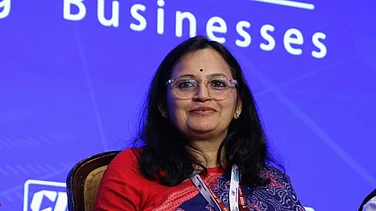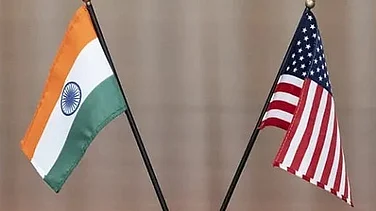The IT Ministry will send a notice to WhatsApp on the issue of spam calls from unknown international numbers, Union Minister Rajeev Chandrasekhar on Thursday said, asserting that the onus of ensuring user safety lies with digital platforms.
The government will respond to every instance of alleged misuse or breach of users' privacy, he added.
Sending out a clear message that digital platforms are responsible for the safety of their users, the Minister of State for IT said the ministry is taking note of the international spam calls issue.
He indicated that one of the aspects being examined is also how these WhatsApp numbers are being identified and accessed in the first place, and whether databases or bots are being leveraged for this.
The minister's comments assume significance as WhatsApp users in India have reported a massive surge in incoming international spam calls over the past few days. Many users complained on Twitter that a major chunk of these spam calls had country codes belonging to Indonesia (+62), Vietnam (+84), Malaysia (+60), Kenya (+254) and Ethiopia (+251).
Chandrasekhar on Tuesday said the ministry is taking cognizance of the matter and will send a notice to WhatsApp on the issue.
"The Ministry is taking note of it, they will send them a notice," he told reporters on the sidelines of an event organised by the Public Affairs Forum of India (PAFI).
The digital platforms are responsible and accountable for ensuring the safety of 'digital nagriks', the minister said, adding that the government will respond to every instance of alleged misuse or alleged breach of users' privacy.
If there is an issue of spam, it is certainly an issue WhatsApp or for that matter any messenger platform should look at, he added. One of the problems being examined at this point is also how these numbers are accessed by scammers.
"How are they able to identify which numbers are on WhatsApp...are they doing it blindly...is it some database they have got? If there is a database it is a violation of privacy, or if not are they are doing it through a bot... sending messages to random numbers... But that is certainly something platforms will be asked to look at," he said.
In an email statement, a WhatsApp spokesperson said international scam calls are a new way that bad actors have recently adopted, and that the platform has quickly ramped up AI and ML systems to bring down such incidents significantly.
"Our new enforcement will reduce the current calling rate by at least 50 per cent and we expect to be able to control the current incidence effectively. We will continue to work relentlessly towards ensuring a safe experience for our users," the WhatsApp spokesperson said.
Protecting the privacy and security of users is fundamental to Meta and WhatsApp, the spokesperson said, adding "Our users are at the heart of everything we do and we are fully aligned with the Government's goal of keeping users safe".
"WhatsApp is a leader among end-to-end encrypted services in protecting user safety. We continue to provide several safety tools within WhatsApp like Block and Report, consistently build user safety education and awareness, as well as, proactively weed out bad actors from our platform.
"However, bad actors find different ways to scam users. International scam calls are a new way that bad actors have recently adopted. By giving a missed call, they lead curious users to call or message back only to get scammed," the WhatsApp spokesperson said.
Chandrasekhar tweeted on Wednesday that the government will investigate a claim that WhatsApp accessed the microphone of smartphone users while the phone was not in use.
In a tweet, the minister had said the government will examine the alleged breach of privacy even as the new Digital Personal Data Protection Bill was being readied.
This followed a claim that WhatsApp accessed a user's microphone while he was sleeping.
WhatsApp had then responded saying it has been in touch with the Twitter engineer over the last 24 hours, who posted an issue with his Pixel phone and WhatsApp.
"We believe this is a bug on Android that misattributes information in their Privacy Dashboard and have asked Google to investigate and remediate," WhatsApp said in a tweet.
The company also claimed that users have full control over their mic settings.
The minister on Thursday said the government is mulling guidelines on what should be permissions for preloaded apps.
To a question on some online gaming platforms opposing any idea of the self-regulatory organisation (SRO) backed by the association IAMAI, the minister said it has already been clarified during the consultation process that no existing industry organisation can be an SRO.
"SRO has to be notified by the ministry, which means SRO has to be approved by the ministry as meeting criteria laid down in online gaming rules. There will be SRO that will be formed...100 will apply, and three will be selected based on who is most transparent, inclusive and who represents most stakeholders and who is more credible," the minister said.
On the draft digital personal data protection Bill, Chandrasekhar said he is hopeful that it will be introduced in the coming session of Parliament.
The next phase of consultation on the much-awaited Digital India Act - that will replace the 23-year-old IT Act - will happen this month, and the early draft will be ready by May-end.
The minister said that the government is also planning to increase the incentives for IT hardware to about Rs 17,000 crore, and approval is expected by the month-end.
The government wants to encourage sustainability in data centres and is also keen on ways to create more choice and competition in the cloud space.
"Today, it is only Amazon and Azure, and our Meghraj, which is NIC...we don't want it to become a Big Tech space and have only Azure and Amazon, so we certainly want more players in that, and that is do-able and many Indian companies are capable of doing it," he said.
Asked if the government plans to reopen the application process for the chip manufacturing scheme, the minister confirmed that the window will be open indefinitely.
"That window will now be open indefinitely, as against the original idea of keeping it open for 45 days. It will now be open for as many players including players in the first round who could not compete for some reason, they can all reapply," he said.
Earlier while addressing the PAFI Dialogue, he exhorted the industry to participate actively and constructively in the consultation process as India frames new laws and regulations in the digital space.
"I would urge that you leave behind the concept of lobbying, which was really a less-satisfying outcome, and sometimes the outcomes are very focused on one entity or one enterprise," he said, calling for open, transparent and high-quality engagements as the country draws up new frameworks.































